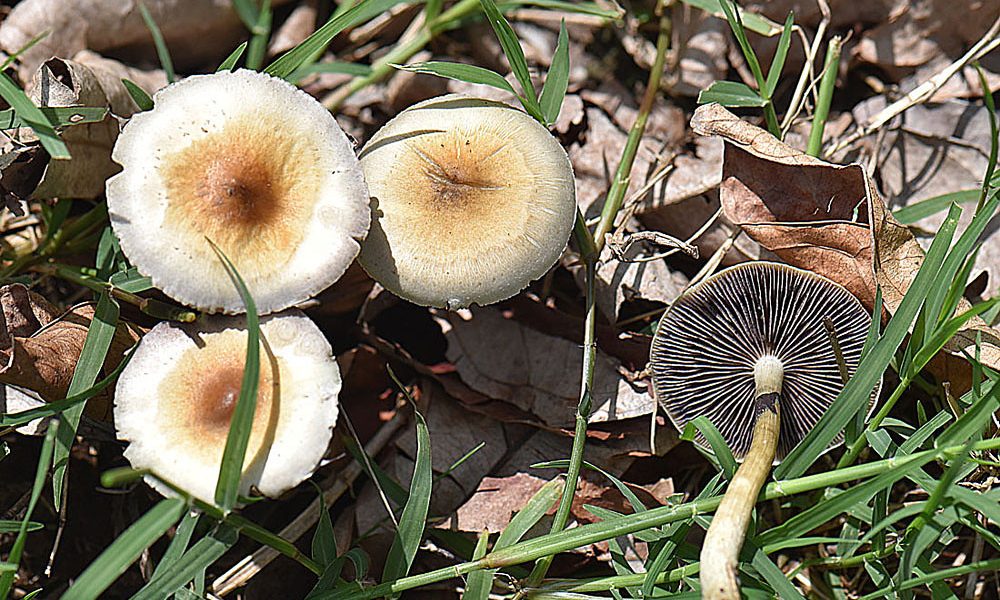Oklahoma lawmakers have approved bill in committee to promote research into the therapeutic potential of psilocybin while providing legal protections against prosecution for people with eligible conditions who possess the psychedelic.
The House Alcohol, Tobacco and Controlled Substances Committee passed a substitute of the legislation from Rep. Daniel Pae (R) in a 6-1 vote on Wednesday.
As revised, the measure calls for the establishment of a pilot program that would let universities as well as research facilities that contract with Oklahoma institutions of higher education carry out studies into psilocybin and psilocyn.
Research institutions would need to look into the use of the psychedelics for the treatment of post-traumatic stress disorder (PTSD), traumatic brain injury, early-stage dementia, palliative care, end-of-life care, opioid use disorder, chronic pain, severe depression, anxiety and obsessive-compulsive disorder.
As introduced, the bill was already more limited than a version that Pae sponsored last session, omitting provisions to broadly decriminalize the substances.
But while the bill no longer couples research with decriminalization, people who face prosecution over psilocybin possession would be afforded an affirmative defense if they can “demonstrate by clear and convincing evidence” that they have a medical condition that falls under the list of study subjects like PTSD or chronic pain.
—
Marijuana Moment is tracking hundreds of cannabis, psychedelics and drug policy bills in state legislatures and Congress this year. Patreon supporters pledging at least $25/month get access to our interactive maps, charts and hearing calendar so they don’t miss any developments.
Learn more about our marijuana bill tracker and become a supporter on Patreon to get access.
—
“This subsection shall not be understood to be the decriminalization of psilocybin or psilocyn,” the bill states.
The new measure was further revised in committee, with members approving a substitute to remove references to “clinical trials” that the institutions would have been expected to carry out and instead describing the research mandate in the context of a pilot program.
Researchers could still study psilocybin by administering it to registered patients, however, so it doesn’t seem that the amended language would have a significant practical impact.
The sponsor said during Wednesday’s hearing that they made the change after “looking at other states” that have pursued similar legislation.
Under the legislation, researchers would need to study the “therapeutic efficacy” of psilocybin for the listed conditions, review of the existing scientific literature and also examine the “science of cultivation, synthesis, extraction, and processing of psilocybin and psilocyn as well as the fungi, yeasts, and other naturally occurring source organisms of these molecules.”
Researchers and people participating in the psychedelics pilot program would be protected against prosecution.
“Researching entities shall submit a written report to the President Pro Tempore of the Oklahoma State Senate and the Speaker of the Oklahoma House of Representatives containing the results of the studies conducted under this section and any recommendations for legislative or other actions not later than December 1, 2026,” it continues.
The legislation that Pae sponsored last session passed the House and made it through a Senate committee, where it was amended to exclude decriminalization, but it did not advance through the full chamber.
Rep. Logan Phillips (R) separately filed a psychedelic research measure without decriminalization last session, but it wasn’t enacted either.
This psychedelics reform development comes amid a wave of similar legislative efforts to address policy around entheogenic substances in legislatures across the country.
A Hawaii House committee approved legislation earlier this week to promote research into psilocybin and MDMA, for example.
Iowa, Missouri, New Hampshire and Utah are also some of the latest states where lawmakers are working to advance the issue.
Virginia lawmakers rejected a bill last month that would have allow people with serious mental health conditions to possess and use psilocybin mushrooms with a doctor’s recommendation.
Then, this week, a Virginia Senate-passed measure to create a psilocybin advisory board and reschedule the psychedelic was killed in a committee of the GOP-controlled House of Delegates.
Legislators in Connecticut and Massachusetts have also filed bills to revise laws governing entheogenic plants and fungi.
New York Assemblymember Linda Rosenthal (D) pre-filed legislation late last month to legalize certain psychedelics like psilocybin and ibogaine for adults 21 and older. Gov. Kathy Hochul (D) also recently signed a bill mandating that the state immediately reschedule or deschedule Schedule I drugs like MDMA and psilocybin if they’re reclassified under federal law.
Bipartisan Washington State senators also recently unveiled a revised bill to legalize psilocybin services for adults.
There are also psychedelics reform efforts underway in Arizona, California, Colorado, Illinois, Minnesota, Montana, New Jersey and Oregon.
An analysis published in an American Medical Association journal last month concluded that a majority of states will legalize psychedelics by 2037, based on statistical modeling of policy trends.
Biden Signs Equity-Focused Executive Order That Touts Marijuana Clemency Actions, Calling Criminalization A ‘Failed Approach’
Photo courtesy of Dick Culbert.
Read the full article here









